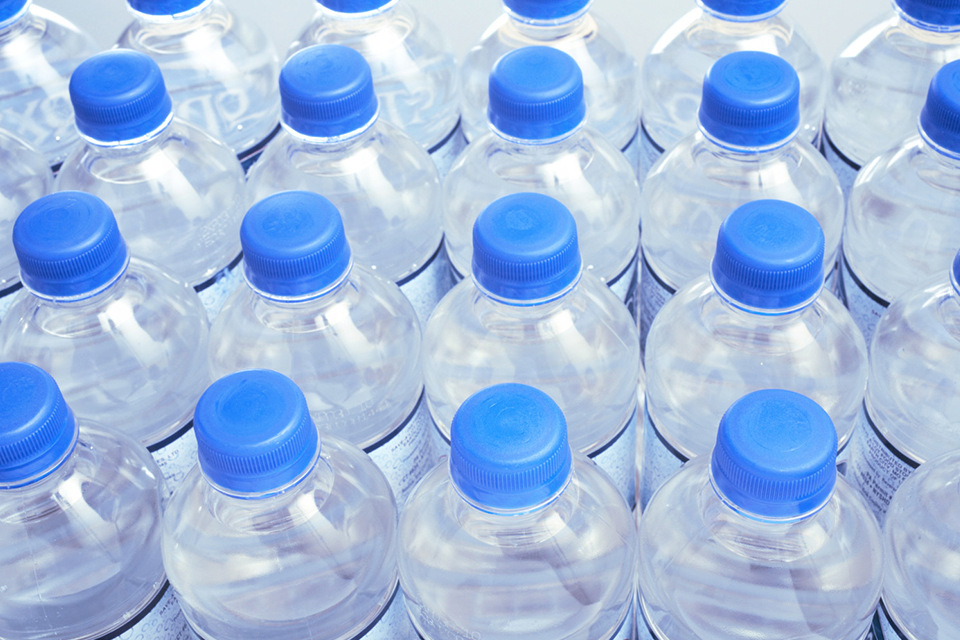Water 101

It’s been widely reported and discussed that drinking water is a necessary practice for achieving ultimate health, vitality, and performance. But just because we know better does not always mean we do better. Why is that, and why do people seem to have such a hard time remembering to drink enough water?
The primordial brain works on a basic reward system. People are only motivated by the anticipation of the reward. If the reward to be received cannot be fully comprehended, then people are less likely to be motivated to maintain a consistent routine. If it’s difficult to remember the why, attempting a new beneficial habit will be met with resistance. However, when armed with the right information, it’s possible to become inspired to make changes. In this case, that means making daily water intake a second-nature routine, as important and habitual as brushing your teeth.
It is fascinating how this simple, tasteless beverage is such a power player when it comes to maintaining health. Water helps sustain a healthy body weight in addition to aiding in the proper digestion and assimilation of nutrients from food. Water plays a profound role in healthy glowing skin, decreased muscle and joint inflammation, and better circulation. One of the most important advantages to drinking water is detoxifying the body naturally, thus preventing disease and flushing harmful chemicals. If you haven’t already reached over to grab a water bottle, then consider this: At the first signs of dehydration, metabolism slows by as much as 3 percent. If weight loss is your goal, then water is your new best friend!
The amount of water that’s needed daily varies due to three factors: exercise level, health conditions, and the heat and humidity of the environment. The basic rule of thumb is to take your weight and cut it in half as a baseline for how many ounces to consume daily (example: 150 pounds divided by 2 = 75 ounces daily). Athletes will add to this baseline if they produce sweat, feel ongoing thirst, or have other requirements from a doctor.
Quality is just as important as quantity when it comes to hydrating the body for optimal performance. With the chlorine, herbicides, pesticides, chemicals, and even bacteria floating around in tap water, it’s best to purify drinking water in order to reap the benefits without creating further toxicity. There are many different filtration systems on the market, but carbon filters and reverse osmosis are the systems I recommend. Most people are surprised to find that they can have a reverse osmosis system filter installed under the sink for a few hundred dollars. And if you rent your home, you can always take that filter with you when you move.
Beware of the convenience of bottled water. Many companies do not use adequate filtration systems, and most brands use plastic bottles, which can add harmful chemicals to the water and increase the risk for certain cancers. And then there are the negative consequences to the environment; every single piece of plastic ever created is still here on this planet. It’s important to do everything possible to limit usage of plastic, especially when consuming water. Don’t be fooled by “BPA free” labels. BPA (bisphenol A, an industrial chemical used to make plastics) is only one of three chemicals in plastic, and the only one to have been studied and proven toxic. As a last resort, drinking bottled water is an okay plan, but a more sustainable and long-term option is to install a basic water filter on your faucet and, ideally, your day-to-day water bottle should be made of glass.
If you aren’t one for keeping track of ounces, urine’s color will tell whether you need to drink more (that is, as long as you aren’t supplementing with B vitamins, which turn urine bright yellow). If you’re well hydrated, your urine should be light yellow to clear in color. If you see dark yellow urine, it’s time to chug some clean water. We can agree that running to the bathroom all day long can be quite annoying, but keep in mind that every time you urinate, toxins are flushed from the body.
During athletic training, it’s best to avoid coffee, soda, and supplements that contain caffeine. Why? Caffeine is a major diuretic and along with stripping the body’s precious stores of water, it removes calcium and magnesium from the bones. Post exercise, add electrolytes to water or drink some fresh coconut water to replenish minerals. Stimulants like caffeine will do nothing more than provide a quick jolt, leaving you with an energy crash and a dehydrated system later.
Dehydration is hard for most people to identify. By the time we “feel” thirst, we have already entered the late stage of dehydration. Commonly overlooked symptoms of dehydration include (but are not limited to) heartburn, constipation, urinary tract infections, autoimmune diseases such as chronic fatigue syndrome and multiple sclerosis, premature aging, high cholesterol, weight gain, dry skin, and fatigue. (Try not to run over any coworkers as you dash to the water cooler!)
Your body will reward the attention and effort put into making adequate daily water consumption a consistent habit. Starting early ensures that the necessary daily quota is met, so wake up in the morning and immediately start drinking. That way, you aren’t playing catch up for the remainder of the day. Have that water bottle ready so that you can get through an entire bottle within an hour of waking. Another very healing habit is to start the day by drinking the juice of half an organic lemon squeezed into 6–8 ounces of warm water.
Remember: the solution to pollution is dilution. Drink at least half your body weight in ounces of purified water daily to optimize athletic performance, overall health, and vitality.






